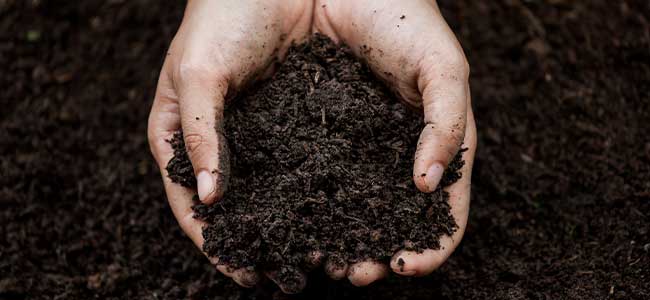
Innovating for a Greener Future: The Role of Compostable Materials in Reducing Waste
Compostable materials offer a sustainable alternative to traditional plastics, helping to reduce waste, enhance soil health and support a circular economy.
- By Felicity Kelly
- May 24, 2024
One important element of sustainability is meeting the needs of the present without compromising the needs of future generations. This movement is about balancing today's social and financial considerations to ensure long-term viability. Waste reduction and management is a critical part of sustainability practice as it helps to minimize the impact of waste on the environment. Compostable materials are set to play a significant role in waste reduction by offering a sustainable alternative to materials such as traditional plastics which are often used as food packaging materials and for disposable takeaway cups and plates.
Unlike conventional plastic materials, compostable materials break down into useful compost, diverting waste from landfills and utilizing ethical and renewable resources.
How Compostable Materials Help Reduce Waste
When broken down, compostable materials become nutrient-rich compost, which enriches soil and supports plant growth. Properly disposed of compostable materials can help reduce greenhouse gas emissions by limiting the amount of waste going to the landfill while contributing to soil health and fertility.
In addition to reducing waste, the nutrients from these compostable materials can enhance the productivity of agricultural lands, thereby reducing the need for synthetic fertilizers and promoting sustainable farming practices. Compostable materials possess unique characteristics that contribute to a more sustainable approach to managing waste and promoting a circular economy.
Characteristics of Compostable Materials
Compostable materials break down naturally through the action of bacteria, fungi or worms. This natural decomposition process is accelerated using composters and transforms these materials relatively quickly into harmless substances, and the organic matter produced is converted into nutrient-rich soil, further enhancing its environmental benefits. Certification standards for compostable materials have been introduced, such as ASTM D6400, which applies to products made from plastics designed to be composted in industrial aerobic composting facilities, and EN 13432, a European harmonized standard for compostable and biodegradable packaging.
Environmental Impact of Compostable Materials
Adopting compostable materials can significantly reduce plastic pollution while reducing greenhouse gas emissions. Compostable materials are vital tools to address the global plastic pollution crisis. Compostable materials support a more sustainable waste management system and contribute to a cleaner and healthier environment for everyone.
Circular Economy Benefits of Compostable Materials
In addition to their environmental benefits, compostable materials enhance resource efficiency and encourage sustainable practices. Composting allows organic materials to be reused, thus facilitating the transition to a more sustainable and circular economy model. Furthermore, compostable materials raise awareness and promote education in effective waste management practices.
Examples and Applications of Compostable Materials
Compostable materials include plant-based food waste, starch-based bioplastics, paper, wool, cardboard, wood, cotton, natural fabrics, silk and biopolymers. These materials are now being used in areas traditionally serviced by single-use plastics. One of the biggest contributors to plastic pollution has been packaging and disposable tableware, but today, sustainable alternatives to conventional single-use items, such as conventional disposable takeaway cups sourced from renewable or recyclable materials, are widely available.
How Innovations in Compostable Materials are Reshaping Waste Management
Recent innovations in materials offer exciting new possibilities for waste reduction. Developing compostable alternatives to conventional materials, which are used for a wide range of products and provide similar functionality, is made possible through advanced technology. Bioplastics are derived from renewable resources such as plant fiber, cornstarch or sugarcane. These bioplastics offer a sustainable alternative to conventional petroleum-based plastics. So they can reduce the environmental impact of plastic pollution while reducing the global reliance on fossil fuels.
Different Ways Individuals and Businesses Can Support the Use of Compostable Materials
Individuals and businesses can embrace the use of compostable materials to contribute to waste reduction in several ways:
- By separating organic waste from other types of waste, organic waste can be composted or recycled easily, thereby diverting it from landfills.
- Individuals can compost organic waste at home to manage their organic waste effectively.
- Choosing products made from compostable materials wherever possible supports brands that prioritize sustainability and invest in research and development to produce compostable or recyclable alternatives.
Conclusion
The adoption and utilization of compostable materials is already driving changes in many industries that are paving the way toward a greener and more sustainable future for everyone. These innovative compostable materials offer an effective alternative to conventional plastics and can significantly reduce current issues with plastic pollution. Unlike traditional plastics made from petrochemicals, compostable materials break down into harmless compounds that can enrich soil with valuable nutrients. Using compostable materials reduces landfill waste, mitigates the global plastic pollution problem and promotes a circular economy.
About the Author
Felicity Kelly is the Head of Sustainability at Bunzl Australia & New Zealand. She assists organizations in enhancing their sustainability performance and reputation, as well as managing their entire value chain through stakeholder engagement, communication, risk management, problem-solving, strategy development and execution.
Felicity holds a Master's degree in Corporate Environmental and Sustainability Management from Monash University. She has extensive experience working across various sectors, primarily in Fast-Moving Consumer Goods (FMCG) and logistics.